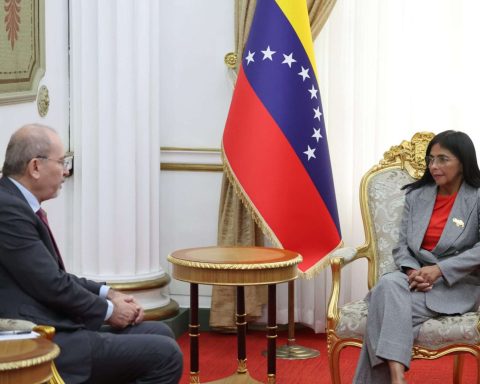Central American business groups unanimously rejected the cancellation on Monday in Nicaragua of at least 19 private sector chambers, including the Higher Council for Private Enterprise (Cosep).
The Federation of Private Entities of Central America, Panama and the Dominican Republic (Fedepricap) expressed in a statement “its rejection” of the action of the Ortega government, which alleged that the Nicaraguan employers failed to comply with a series of regulations established by law.
“We stand in solidarity with the 19 private unions affected by this determination, especially with our member organization, the Superior Council for Private Enterprise (COSEP), Nicaragua’s business leadership,” the document said.
Fedepricap added that business freedom and freedom of expression “are the basis of democracy” for the opening to investment.
The Honduran Council for Private Enterprise (Cohep) also stressed that the measure of the Nicaraguan executive “violates the Declaration of Fundamental Principles and Rights of the Labor Organization,” as well as other agreements.
“We believe that this decision endangers the union’s institutionality, freedom of association and representation in Nicaragua, thus limiting the conditions for attracting investment,” adds Cohep.
From Costa Rica, the Federation of Chambers of that country condemned the action “of the Nicaraguan regime” and indicated that it will continue to offer them “open doors for whatever they deem necessary.”
In Guatemala. The Coordinating Committee of Agricultural, Commercial, Industrial and Financial Associations (Cacif), also emphasized that it expressed “its rejection” of the “arbitrary closure” of Cosep and all its business chambers.
Silence from the Nicaraguan private sector
After the measure, the private sector in Nicaragua has not made statements for fear of reprisals, according to reports by the country’s local media.
However, the former president of the Chamber of Tourism, Lucy Valenti, who is in exile in the United States, stressed that this action leads Managua to the “Talibanization” of the country.
“The cancellation of the legal status of Canatur and all unions was a matter of time. It is part of the Talibanization process of the dictatorship. They feel cornered and their response is to destroy,” Valenti wrote on Twitter.
For his part, the former treasurer of the National Chamber of Tourism (Canatur), Alfredo Gutiérrez, argued that “the legal disarticulation of the chambers will undoubtedly leave the dozens of micro, small, medium, and large tourist companies that are established partners and non-members helpless. in the country”.
Connect with the Voice of America! Subscribe to our channel Youtube and activate notifications, or follow us on social networks: Facebook, Twitter and Instagram.

















